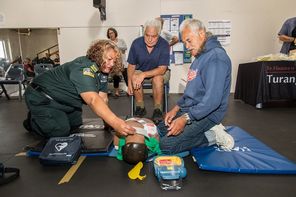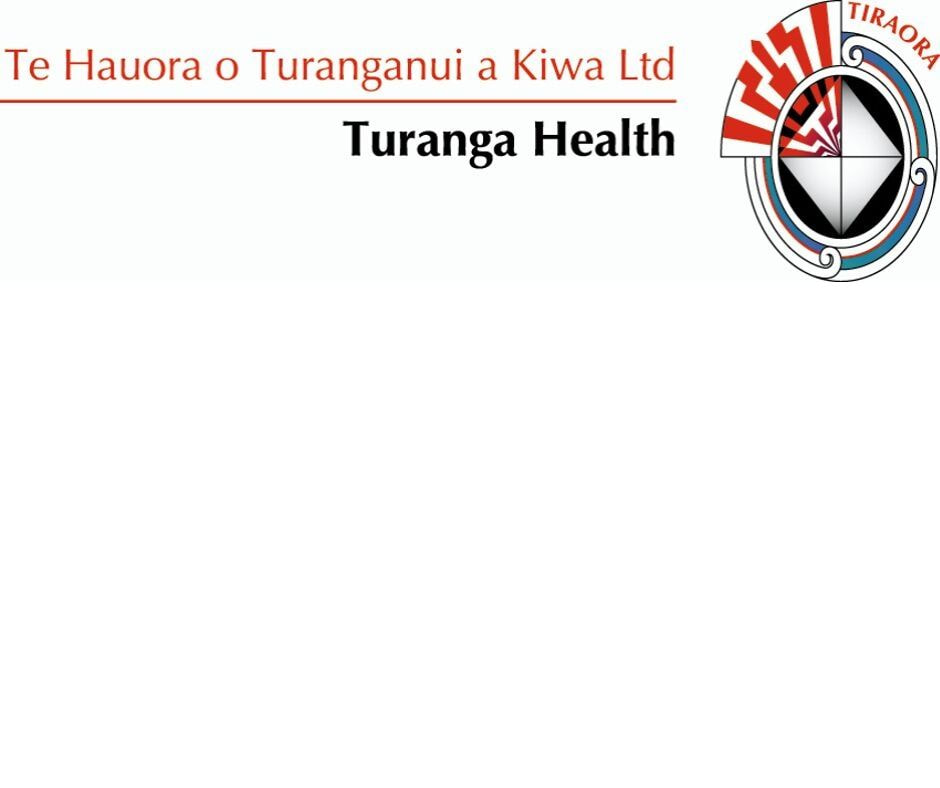 Opotiki St John first responder Rebecca Jones chats to Ohako Marae chair Dave Pardoe about the new defibrillatorsinstalled at marae around the rohe. Kevin Weatherely Photography. Opotiki St John first responder Rebecca Jones chats to Ohako Marae chair Dave Pardoe about the new defibrillatorsinstalled at marae around the rohe. Kevin Weatherely Photography. THEY are too late to save the community member who died in his driveway after a day's work, but could well be in time to save others who suffer a heart event near marae around Turanganui-a-Kiwa. Maori health organisation Turanga Health has paid for defibrillators to be installed at 20 marae in a move chief executive Reweti Ropiha says is about making sure all whanau have access to the life-saving equipment. For Turanga Health long-term staffer and kaumatua Libby (Uncle Lib) Kerr, it's personal . . . many of his siblings have hearts weakened by rheumatic fever and after their youngest son caught rheumatic fever as a teen in the late 1980s, Uncle Lib and wife Mere were told their boy would be unlikely to live beyond the age of 30. He's defied the odds -- now aged 42, their son is still going strong, even after having major heart surgery -- but the Kerrs say it's reassuring to know that, should anything happen, help is not too far away. St John New Zealand had gifted 59 defibrillators to marae around the country, but with the focus on remote areas, those closer to cities like Gisborne missed out. “Reweti saw that some had gone up the East Coast and thought, 'hey, what about closer to home',” says St John national adviser (Maori health), Stephen Dennett. “So the contribution from Turanga Health is a great way to continue this journey.” There had been talk of the possibility of getting defibrillators to Turanganui-a-Kiwa marae, but according to Reweti, it was Uncle Lib who made it happen. “We call him Speedy because when he sets his mind to something, he makes sure it gets done.” Getting the defibrillators purchased, installed, maintained and whanau trained in their use is a joint project between Turanga Health, St John, the NZ Fire Service and marae committees. There is not much training to do: the hand-held devices come with easy instructions on how to get them to deliver a dose of electric current to the heart in the event of a cardiac emergency. But even so, Turanga Health in December hosted three sessions to ensure marae representatives were up to speed. Opotiki first responder Rebecca Jones was on annual leave when the training team visited Turanga Health but says she didn't hesitate to come back on board to help share her knowledge about defibrillators and their operation. “That is just the St John way.” Among the whanau at the training sessions was Ohako Marae chair Dave Pardoe, who says the chance to have a potentially life-saving device installed in their Manutuke community was “fantastic”. “That's an offer from Turanga Health we just couldn't turn down and our committee will support St John in making sure the community knows it is there for them to use. We have all lost people so anything that could help prevent that in the future is wonderful.” According to Stephen Dennett, Maori have high incidences of heart conditions and low rates of survival after an event, so installing thedefibrillators at marae is a way of taking help to where it is needed. For that reason, the devices be will available externally so they can be used by the community, not just when there is a marae event on. “While that brings some extra challenges, we believe that each community will seek to protect the safety and integrity of the devices,” Reweti Ropiha says. “For us, it’s all about access to potentially life-saving equipment. If an incident occurred -- whether it be at Matawai or Muriwai – then we have something on hand that could make a difference and potentially change the outcome.”
0 Comments
|
Media Releases
Email us if you want to receive our media releases. Archives
February 2024
|


